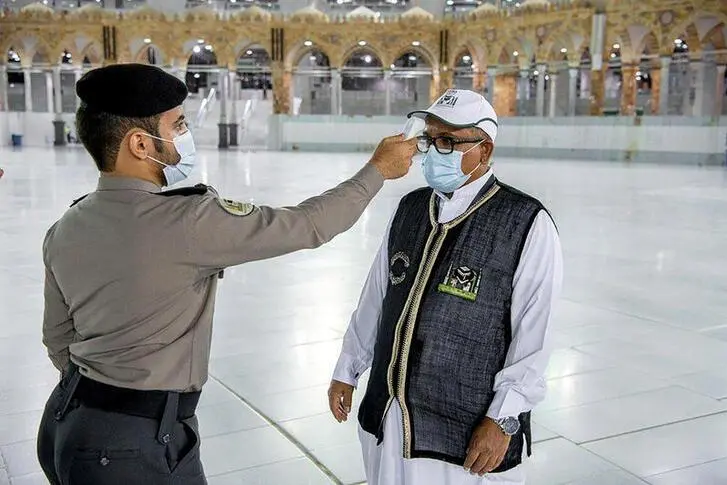PHOTO
The media spokesman for the police in Hail region, Captain Tariq Al-Nassar, said that a video circulating of a man with a positive PCR test wandering about in a shopping mall had led to his arrest after the authorities identified him. Legal action has now been taken against him.
Al-Nassar said that the penalties for violators of the precautionary and preventive measures against COVID-19 included a fine of no more than SR500,000 or imprisonment for a period not exceeding five years, or both.
In Qassim region, the media spokesman for the police, Lt. Col. Badr Al-Suhaibani, said that 60 people were arrested for violating quarantine regulations after it was confirmed that they were infected with the virus.
Saudi Arabia on Wednesday reported 14 more COVID-19-related deaths, taking the overall toll to 8,284.
There were 1,043 new cases, meaning that 529,995 people in the country had now contracted the disease. A total of 10,393 cases remained active, of which 1,396 patients were in critical condition.
FASTFACTS
Saudi Arabia reported 1,043 new COVID-19 cases on Wednesday, bringing the total to 529,995
A total of 10,393 cases remained active, of which 1,396 patients were in critical condition.
The death toll has risen to 8,284 with 14 more virus-related fatalities
28,492,380 people in the country had to date received a jab against COVID-19
Of the newly recorded cases, 214 were in Makkah region, 192 in Riyadh region, 169 in the Eastern Province, and 65 in Madinah region.
In addition, the ministry said that 1,211 patients had recovered from the disease, increasing the total number of recoveries in the Kingdom to 511,318.
The region with the highest recovery rate is Riyadh at 267, followed by Makkah at 217 and Eastern Province at 200.
Saudi Arabia had so far conducted 25,443,550 polymerase chain reaction (PCR) tests, with 106,517 carried out in the past 24 hours.
Testing hubs and treatment centers set up throughout the country have dealt with hundreds of thousands of people since the COVID-19 pandemic outbreak.
Among them, Taakad (make sure) centers provide COVID-19 testing for those who show no or only mild symptoms or believe they have come into contact with an infected individual. Tetamman (rest assured) clinics offer treatment and advice to those with virus symptoms such as fever, loss of taste and smell, and breathing difficulties.
Appointments for both services can be made via the ministry’s Sehhaty app.
Meanwhile, 28,492,380 people in the country had to date received a jab against COVID-19, including 1,496,037 elderly people. About 55.9 percent of the population had received the first dose, while 25.9 percent had completed both doses. At this rate, 70 percent of the population is expected to have completed both doses by September 28, 2021.
Meanwhile, Rafha Health Affairs in the northern region of the Kingdom, represented by the Central Hospital, has activated virtual clinics for patients benefiting from its services in outpatient clinics.
This gives patients the option to remotely attend medical appointments in an attempt to limit the spread of COVID-19. The management of Central Hospital explained that this service allows direct communication between doctors and their patients through interactive video communication.
“We have made remote clinics available to save people’s time and efforts, as it is possible to communicate directly with the doctor, without the need to come to the clinic,” the minister of health said earlier.
Copyright: Arab News © 2021 All rights reserved. Provided by SyndiGate Media Inc. (Syndigate.info).





















